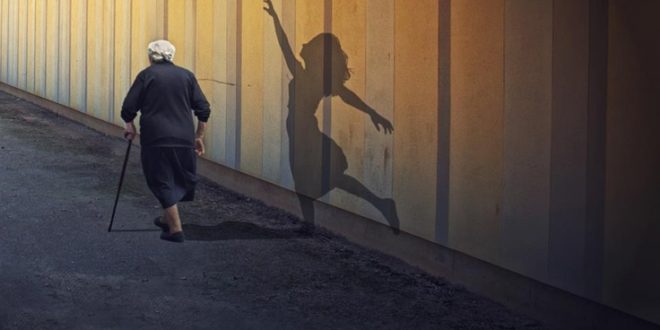“Just because there’s snow on the roof doesn’t mean there’s not a fire inside.” ― Bonnie Hunt
 The word ‘old’ is often used in a negative sense, such as ‘you silly old bugger’, or when I had a hearing test recently and asked about the results I was told that my hearing was consistent with my ageing. ‘That’s what happens at your age’.
The word ‘old’ is often used in a negative sense, such as ‘you silly old bugger’, or when I had a hearing test recently and asked about the results I was told that my hearing was consistent with my ageing. ‘That’s what happens at your age’.
Although many workplaces do not wish to employ people when they reach their sixties, in truth, very many of us will live into our eighties and nineties, for the average life expectancy for most of the developed world is the mid-eighties. For the time when we are told to start thinking about our retirement (from about age 50 forward), we are categorised as ‘old’. This long period has many different features. Some financial planners have talked about this time in 3 different stages – ‘go-go’, slow-go and the no-go periods! But to others, we are seen as ‘old’.
Have you seen headlines such as ‘elderly man hit by car’ only to discover that the person was 60 and still had on average 30 years to live? So if the label ‘old’ is applied to say a 50-year-old as well as to a centenarian, then ‘old age’ is a very long stage of life.
A time to celebrate
Looking at this period and thinking what it is that we want from this time, we may have almost half of our lives to live. We have very valuable contributions to make. We should be celebrating living longer lives as one of the greatest achievements of our time.
 Unfortunately, many sectors of society do not see things quite like this. When governments do decide to develop plans for people over 50, everything is framed in costs and burdens. How will the health system cope? What level of retirement income can the nation afford? Economist Robert Reich has described the ageing population as a “problem unfolding like a slow motion train wreck’ and this despite him being an active 68-year-old contributing to debate at the highest levels!
Unfortunately, many sectors of society do not see things quite like this. When governments do decide to develop plans for people over 50, everything is framed in costs and burdens. How will the health system cope? What level of retirement income can the nation afford? Economist Robert Reich has described the ageing population as a “problem unfolding like a slow motion train wreck’ and this despite him being an active 68-year-old contributing to debate at the highest levels!
While the health system says it is groaning under the demand for more and better quality care by people over 50, there is very little encouragement for people to engage in preventive care. Most cancer screening programmes – breast, cervical, prostate, colon tend to stop offering services to people when they reach 70. What is the message here?
Ageing is a natural and an inevitable stage of life with its own needs. Policies that encourage us to look after our bodies and our minds and so reduce our burden on health services do not seem to get any air. In actual fact, people over 50 are healthier than ever before and we are much wealthier than previous generations. We will cost society less the more we look after ourselves.
The workplace
 There are also myths about older people in the workplace.
There are also myths about older people in the workplace.
- They don’t care about work anymore.
- They don’t understand technology.
- They are not interested in career moves.
In reality, people are now working much longer. As baby boomers are more likely to live to 90, people want to stay in work much longer and not retire at 65. Many people will continue to work because they need to. Others will as they wish to maintain a sense of purpose.
In many instances, employers are beginning to realise that older workers are more reliable, more productive and more costly to replace than younger inexperienced workers. There is no real evidence that older workers do not embrace change or are unwilling to learn. Just look at the numbers of people who are fronting up for computer classes on PC’s, tablets and smartphones.
At 70 people are quite capable of learning new skills. The Roman politician, Cato, began to learn Greek at 80. There are many modern examples of people in their 80’s and 90’s achieving great things. Do you have any of your own examples?
By Ron Trustin
Motivating baby boomers to see the world with fresh eyes.
Read more articles from Ron here.
Revive and Thrive Coaching
www.reviveandthrivecoaching.com
info@rtc.org.nz
Ph 0800 003679









Join the Discussion
Type out your comment here:
You must be logged in to post a comment.